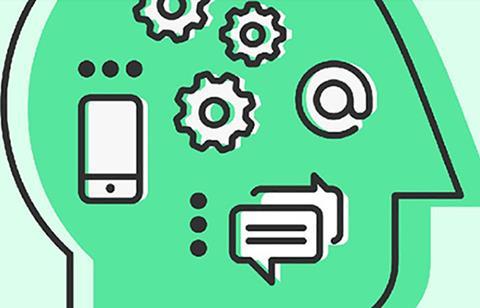
The last few weeks have taught us an incredible amount about our psyches and the modern world of work.
On the one hand we’ve been reminded of the fragility of our health, instability of our economy, and our dependence on routines. On the other, we've shown our ability to focus on what really matters, to adapt to change, and to find new ways of interacting and getting things done.
We’re only a few weeks in, but many aspects of the way we’re working now are better than how they were before COVID-19. This simply wouldn’t be case without digital tools.
Here are four ways technology is improving workplace mental health.
1. Accessibility
Technology is democratising mental health. The traditional one-to-one approach to mental health support is vital for those already facing issues – but is fraught with limitations. For starters, by the time we arrive in the clinic, the problem has already arisen. It's also incredibly difficult to access; limited to the desperately rich, or desperately in need.Technology reframes this narrow view of mental health. Its scalability empowers employers to give entire workforces access to proactive support at relatively low cost. This lowering of the barrier to access enables anyone in possession of a phone, computer or tablet to proactively manage, measure and improve their mental wellbeing, anywhere at any time.
2. Destigmatisation
Technology is destigmatising mental health. Reactive mental healthcare, as described above, is crucial to the one in six people who are currently living with a mental health issue. But thinking about mental health only in this sense naturally associates it with a problem. Far from a bad thing, mental health – like dental hygiene – is something that should be practiced everyday, and valued by Tinder dates.With online mental healthcare, employees get a platform to talk about and seek support for their mental health without judgement. It becomes a safe space for people to start their mental wellbeing journey – to learn about, measure and improve their mental health in a way that’s empowering and authentic.
3. Measuring and improving
Technology enables people to analyse their mental health. The human brain is a bafflingly complex organ. Only really in the last fifty years or so have we even started to get close to understanding the vast intricacies of our minds. But what's demonstrably clear is, like physical health, it needs to be regularly exercised and worked on.Psychometrics let us track and analyse our minds. Design technology lets us visualise and understand them. CBT and cognitive psychology allow us to take meaningful steps to change our habits so we can improve and appreciate our mental health. Combining these simple but effective principles lets us proactively nurture our wellbeing.
4. ROI
Technology makes the measurement of mental health possible, and maximises the returns for money spent on wellbeing initiatives. Deloitte’s recent Mental Health and Employers report dived deep into the impact of mental health interventions in business. While the report found that the average ROI for workplace mental health initiatives is 5:1 (£5 for every £1 spend), some were found to be considerably more effective than others.On one end of the scale, access to a therapist was found to deliver an ROI of 0.4:1. On the other end, broad digitally enabled programmes including workplace mental health platforms, screening, feedback and referrals were found to yield the greatest returns of 11.2:1 (£11.20 to the quid!). Technology enables employers to offer organisation-wide access, to diagnose mental wellbeing and to then tailor proactive measures. These are all factors crucial to improving workplace mental health in a way that’s scalable and cost effective.

More on workplace mental health and wellbeing
Follow us on LinkedIn, Twitter and Instagram to stay up-to-date with our new podcast and latest content.Unmind is a workplace mental health platform. Book a demo to see how it works.











